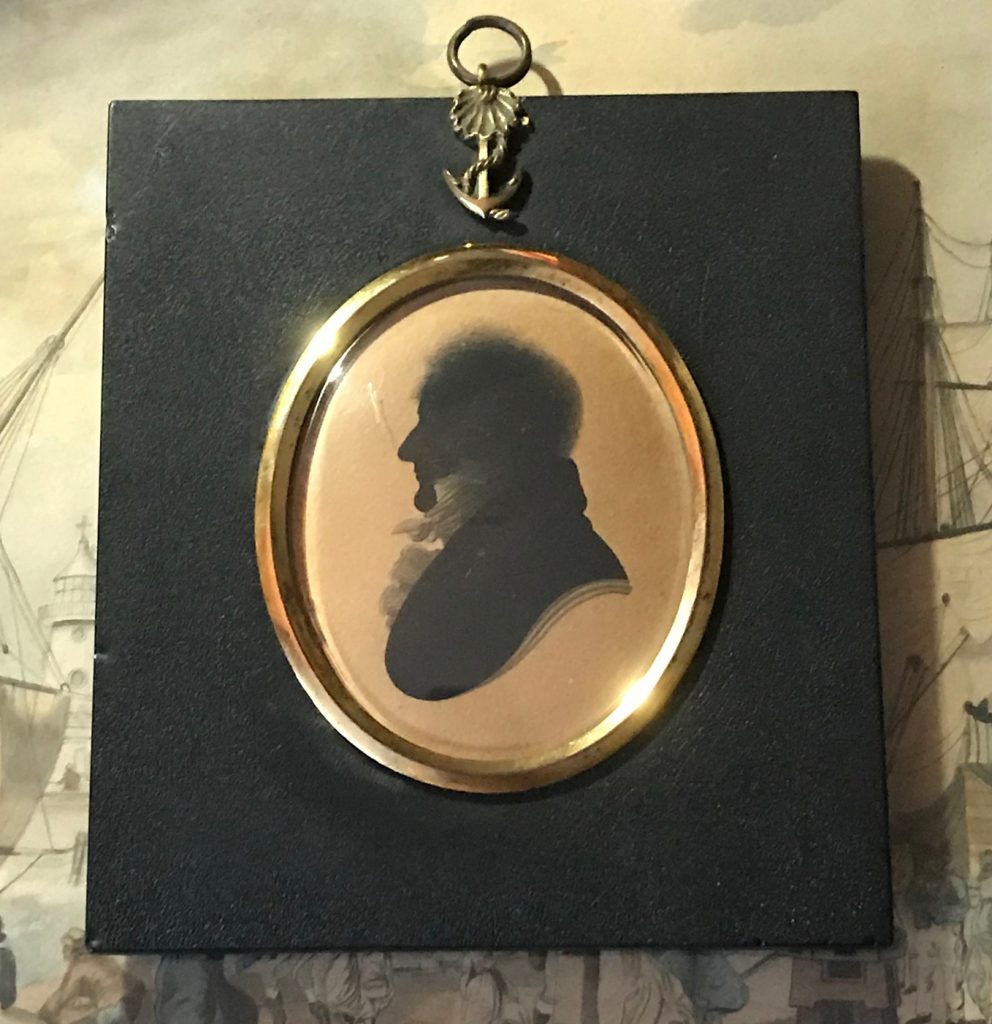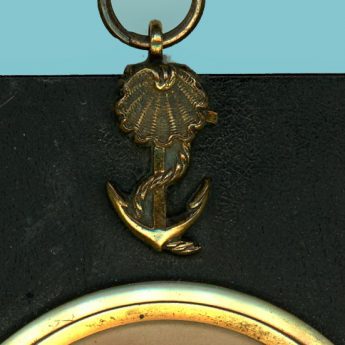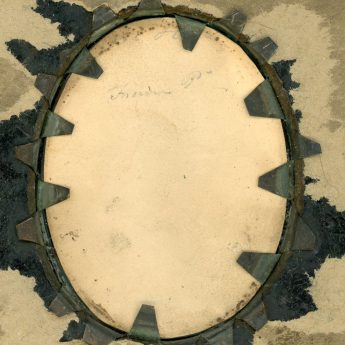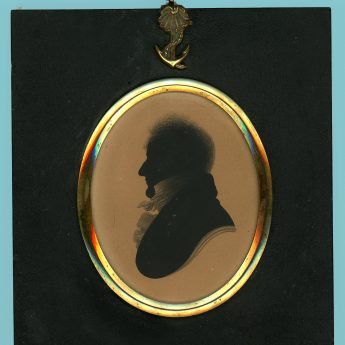
Naval Gentleman
Portrait miniatures, silhouettes, portraits & an omnium-gatherum of historical interest & character.
Enquiries and orders
Naval Gentleman
William Alport (1779-1831)
Sold
The use of the rope and anchor hanger on this frame indicates that the sitter had a maritime connection. This is supported by the fact that the silhouette was painted by William Alport who was based in Liverpool, a busy and important port.
The profile is neatly painted, the hair well-defined as well as the knotted stock and frilled chemise. The profile has Alport’s distinctive painted lines under the bust. It is set in a traditional papier-mâché frame. Although it has inevitable age-browning, the silhouette is in good condition. The convex glass on the frame is scratched.
Born in Birmingham in 1779, William Twigg was the third of eleven children born to Thomas and Ann Allport (also spelled Alport). Thomas was a gunsmith by trade and at least five of his sons subsequently joined him in the business. William though, for reasons unknown, moved to Liverpool having opted instead to follow an artistic career. There he met and married Alice Ashworth and with her had nine children between 1803 and 1819.
In Liverpool Alport worked as a profile artist for William Bullock at his Museum of Natural Curiosities. Bullock also came from Birmingham where he had worked as a goldsmith so it’s possible that the two men were already acquainted and it may even have been the offer of a job as an artist that prompted Alport to leave his home city. Bullock claimed to have invented a physiognotrace, a device that used wire and lenses to capture and reduce an outline profile. This was promoted as an added visitor attraction within the museum – ‘the most accurate Likenesses can be taken in one minute’ – and would have been used by Alport.
By 1809 Bullock and his collection had outgrown Liverpool so he transferred the museum to London. Alport, now married with a young family, stayed behind as did the physiognotrace so it was at this point that he was finally able to paint under his own name. Alport never returned to his home city and his death in 1831, at the age of 52, was announced by the Liverpool press.
Item Ref. 5963
Size: framed, 150 x 131mm (5⅞ x 5⅛")


